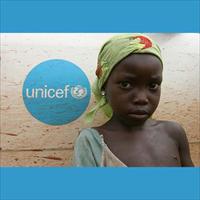UNICEF welcomes signing of Children’s Act into law in South Africa

UNICEF today welcomed the signing of the Children’s Amendment Act by the President of the Republic of South Africa, calling it a major step in improving the protective environment for the country’s children.
This Children’s Act emphasizes the State’s role in strengthening the capacity of families and communities to care for and protect children. It dramatically departs from conventional forms of child protection legislation where the State only intervenes after a child has already suffered abuse, neglect or exploitation. The Act also stipulates protective measures for children deprived of family care to receive care and support through alternative, foster care or in child and youth care centres.
Welcoming the signing of the Act into law, UNICEF Country Representative, Macharia Kamau, commended South Africa for its leadership role in crafting legislation and policies that preserve and protect the well-being of children.
“South Africa’s Children’s Act is a comprehensive piece of legislation that is in line with provisions of the United Nations Convention on the Rights of the Child and contributes to the fulfilment of the country’s own constitutional commitments to realize children’s right to access social services,” Kamau said. “UNICEF is pleased with the developmental approach adopted in the Act.”
UNICEF stressed, that major implementation challenges remain in adapting the Act into concrete actions to improve the care and protection of South Africa’s children. Foremost amongst these, the State will need to ensure adequate and better targeted budgetary allocations at national and provincial levels.
UNICEF recognises the need for improved cooperation between sectors of government – Social Development, Health, Education, Safety and Security, and Justice.
“Resources are lost due to poor inter-sectoral cooperation, and inefficiencies in the effective delivery of services to children at provincial and municipal levels," Kamau said.
The role of non-governmental and community based organizations in the delivery of services to children is of vital importance. This ongoing collaboration should be better financed and supported.
 Back and Next - Back and Next
Back and Next - Back and Next See Also - See Also
See Also - See Also